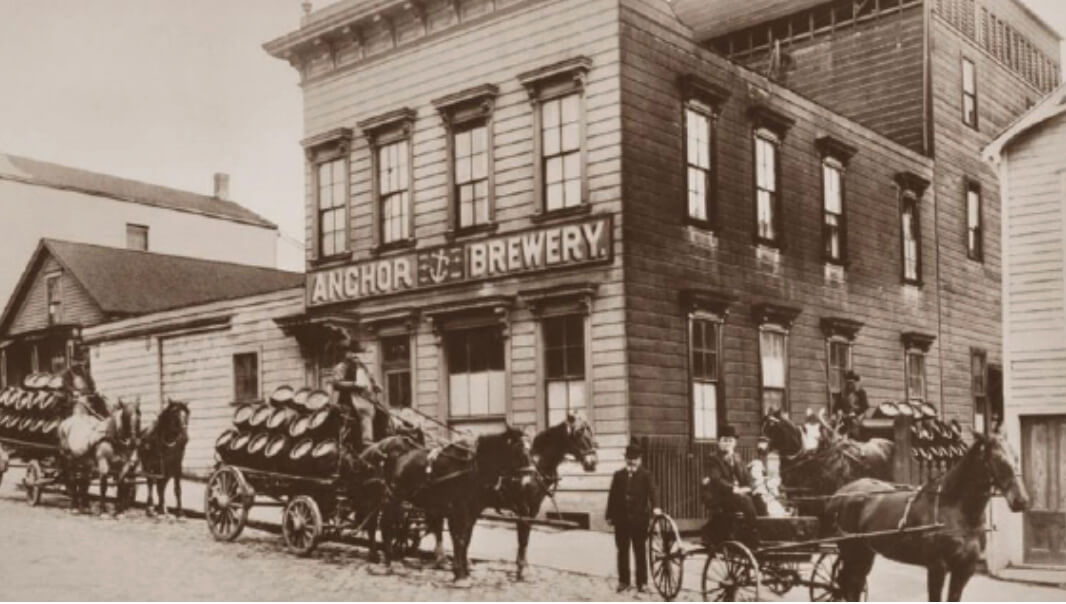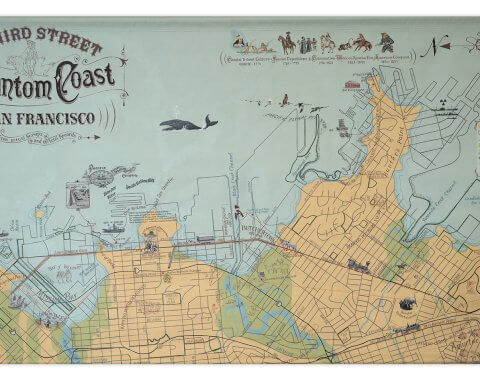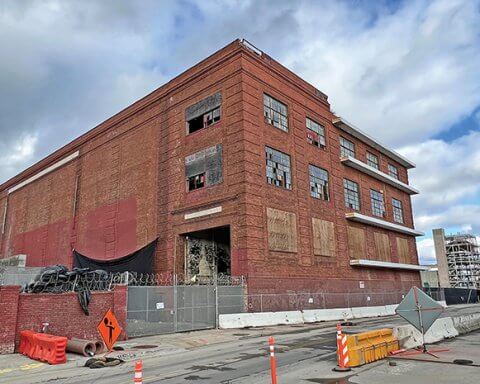
Five months into the purchase of Anchor Brewing Company by Japanese beer giant Sapporo, Anchor president Matt Davenport has promised that the company will continue to be San Francisco’s largest manufacturing employer – currently with 124 staff members – with all of its beer brewed on Potrero Hill.
“Sapporo is committed to preserving and maintaining Anchor’s operations in San Francisco, including the historic Potrero Hill brewery,” Davenport wrote in an email to the View. He added that Sapporo will be investing in production improvements at the Mariposa Street facility, where Anchor has been located since 1979. It’ll also be upgrading the brewery tour program and De Haro Street taproom. “Sapporo Holdings envisions Anchor as a beacon of San Francisco culture, and as such plans to invest in the physical facility to help reinforce the historic nature of the brewery as part of the SF landscape,” Davenport added.
Previous company statements indicate that the brewery, which produced 135,000 barrels in 2016, has been running at less than 60 percent capacity, and that Sapporo will be purchasing automated equipment to improve its bottling efficiency.
Last August, Sapporo paid $85 million to acquire a 100 percent equity interest in the firm, which is best known for its Anchor Steam lager. In 2016, Anchor’s sales totaled approximately $33 million, a four percent drop from the previous year. Real estate was a factor in the deal, however, with Anchor owning the property on which its brewery and adjacent tap room reside. Anchor Distilling, which produces spirits such as Junipero Gin and Old Potrero whiskey, isn’t involved in the deal and will become an independent company.
Anchor Brewing, which was founded in the City in 1896, has long dubbed itself as the country’s oldest craft brewer. Anchor is ranked as the 22nd largest domestic craft brewing company, according to the Brewers Association, an industry trade organization.
It’s unlikely that the Brewers Association will continue to consider Anchor a craft brewer, however, as it defines this category as “small, independent and traditional.” The trend of small brewers being bought out by global conglomerates has been a sore spot for craft brewing advocates, who in the last few years have seen Heineken purchase Petaluma-based Lagunitas, Constellation Brands acquiring San Diego’s Ballast Point, and Anheuser-Busch InBev swallowing 10 craft brewers this decade.
“Since 2011, especially, we’ve seen big beer buying up small and independent brewers in a way we never have before,” said Julia Herz, Brewers Association program director. “Independent craft brewers have brought growth and excitement into beer, and big beer is needing to update their game and evolve to keep pace. Certainly, you can buy into authenticity, but the question is, can you maintain it.”
Last fall, the organization launched a mock crowdsourcing campaign to purchase InBev for $213 billion to keep it from buying more craft breweries. In a more serious effort, in November The Washington Post reported that some mom-and-pop bars and restaurants, from Washington, D.C. to Sacramento, are starting to nix “craft beer” owned by conglomerates to support smaller businesses; the criteria based on a Brewers Association stamp of approval. Last summer, the association began offering a seal which certifying brewers can use. According to Herz, more than 2,800 brewers, close to half of the craft brewers in the U.S., have begun employing it in some form.
The issue came to a head in Oakland last year when neighbors boisterously, but unsuccessfully, tried to halt Golden Road Brewing, one of InBev’s holdings, from opening a bar and restaurant on 40th Street. The opposition was primarily based on the establishment not fitting in with the smaller businesses that occupy the Temescal neighborhood.
However, such efforts might be dwarfed by expansion opportunities now open to Anchor. “No question will we see international expansion of the brand in places like Japan, where Sapporo operates over 200 restaurants and has vast distribution capabilities,” Davenport explained. “Canada is another market where they own breweries and we can see great upside.”
Sapporo, which refers to itself as the oldest beer brand in Japan, dating back to 1876, owns five breweries in its home country, as well as facilities in Vietnam, Canada and Wisconsin. It has a small stake in The Beer Store, a retailer with more than 450 outlets in Ontario. Its Sapporo Premium is the top selling Asian beer in the U.S.
Herz concurred that many competitive advantages accrue to formerly small brewers that’ve been sold, including access to raw materials and ingredients, unprecedented capital and new distribution avenues. While speaking highly of Anchor beers, she said that on a consumer level she was concerned about “an illusion of choice,” where a bar or restaurant has many offerings, all from just a few companies. According to Herz, 98 percent of the 5,300 breweries in the U.S. are small companies, but they make up just 13 percent of sales volume.



